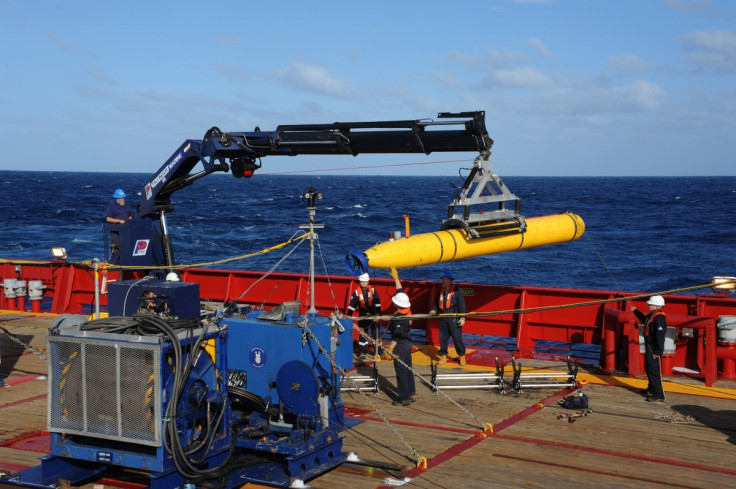Malaysia Airlines Plane MH370: 'Pings' Were Not From Black Box Recorder

The 'pings' thought to have emanated from MH370's black box recorders have been ruled out as having any connection to the missing plane.
Two of the four 'pings' picked up by the US Navy's Bluefin-21 submarine on 8 April were too weak to have been from a man-made device, said Australian naval Commander James Lybrand.
Lybrand said each of the transmissions were at a frequency of around 27kHz lower than the 37.5 kHz frequency that locator beacons are designed to emit and lower than the 33.3 kHz frequency picked up on 5 April.
Cmdr Lybrand told the Wall Street Journal: "As far as frequency goes, between 33 kHz and 27 kHz is a pretty large jump."
Authorities continue to believe the two signals on 5 April - including one held for two hours and 20 minutes – were detected from black-box locator beacons.
Lybrand gave no explanation as to what the 8 April pings were. But archaeologists have previously surmised that the signals may have come from satellite tracking devices tagged to marine animals like sharks and turtles.
Authorities had clung to the hope the pings would have helped to provide the necessary breakthrough in tracing the plane, which disappeared on 8 March.
Lybrand's admission will be another setback to the two-month search operation, which has not uncovered any clues about the plane's whereabouts - only items of rubbish.
It will also further the cause of Voice370, the families of missing loved-ones who are demanding that the Malaysian Government release British Firm, Inmarsat's data, so that "it can be subject to broader analysis by relevant experts". Inmarsat satellite data initially prompted the mass search for the plane in the Indian Ocean.
The group told the Star newspaper of Malaysia: "The Inmarsat satellite data is the only lead we have and is key in identifying MH370's flight path after the plane vanished from civilian radar screens on 8 March.
"In view of the lack of emergency locator transmitter activation and zero debris, we feel it is necessary that the data be subject to independent third-party review."
Meanwhile international aviation officials are due to meet in Montreal to endorse the universal tracking of airlines, which involves firms like Inmarsat, to prevent other flights from suffering a similar fate in the future.
© Copyright IBTimes 2025. All rights reserved.






















